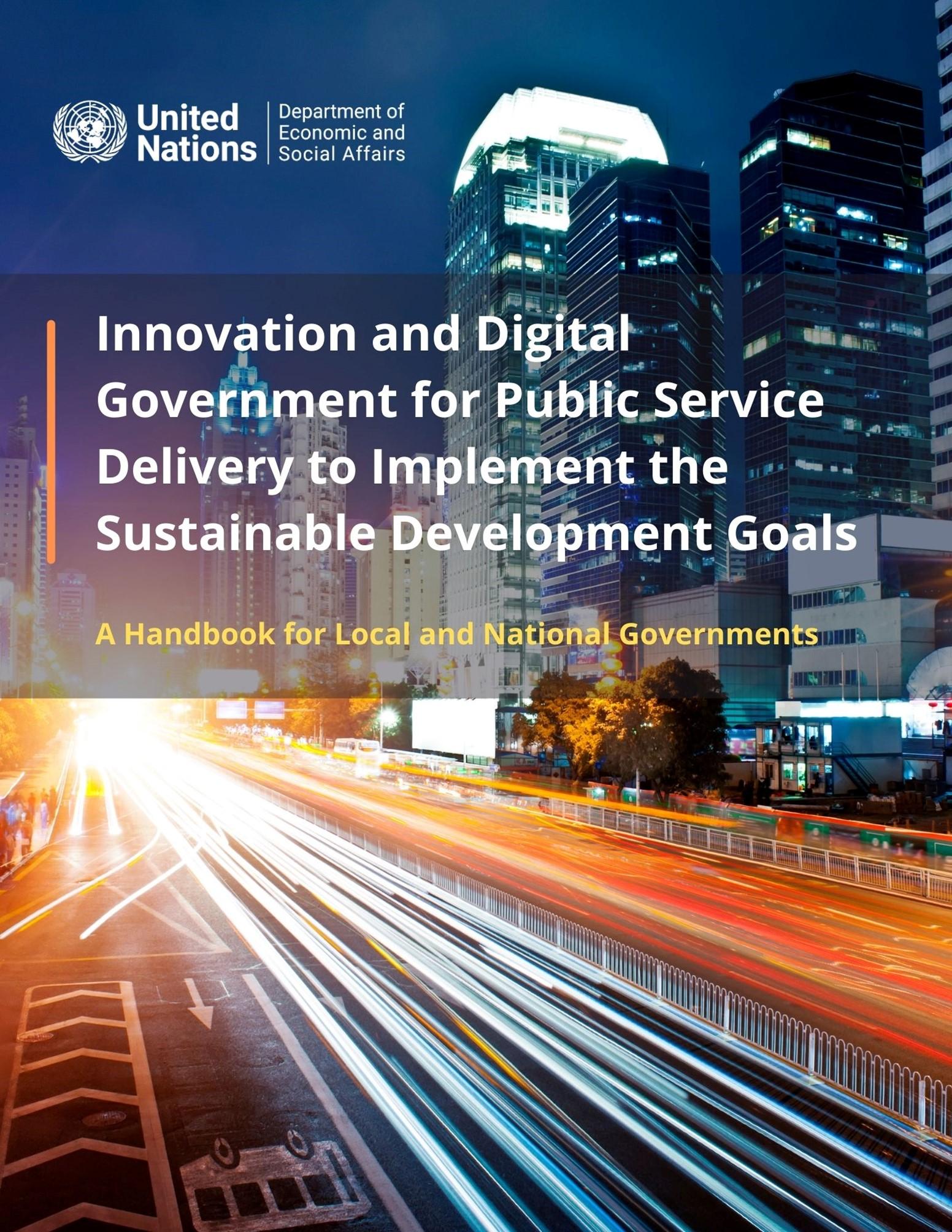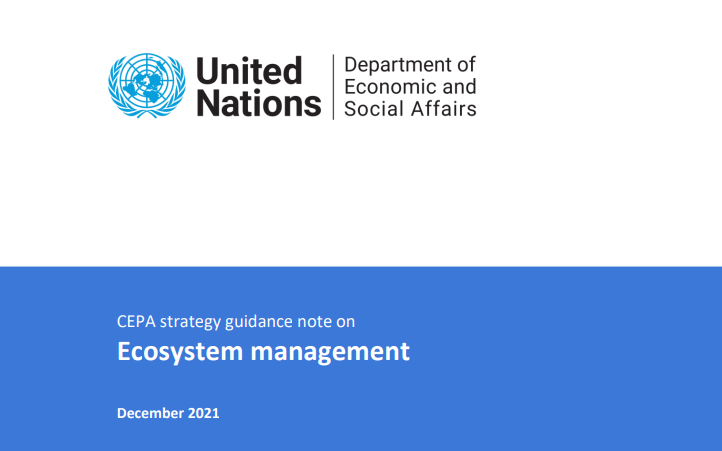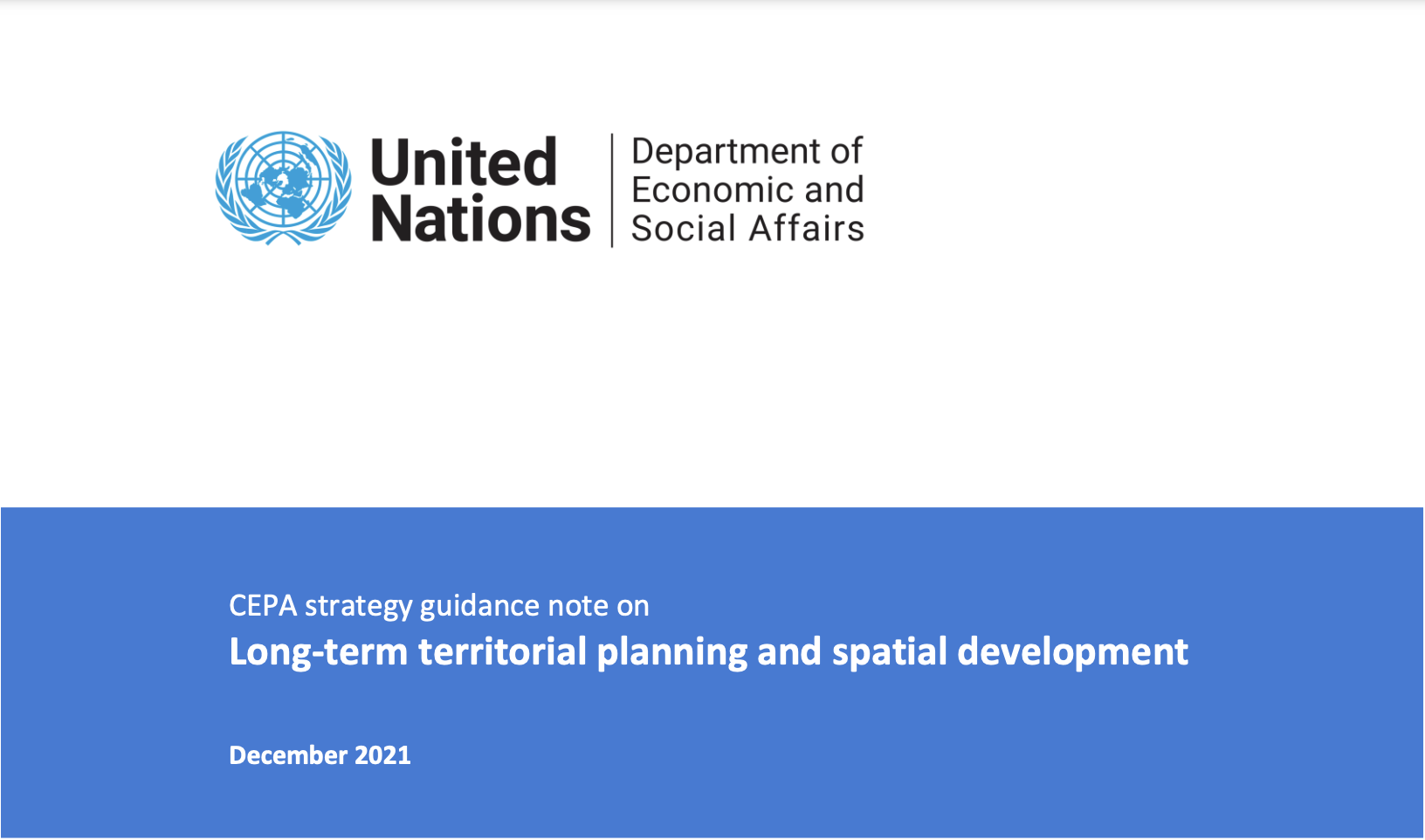| Capacity Development Reports | Sound Policymaking | Public Institutions
Report on Resilience and Recovery from Covid-19 Through Sound Policymaking
This report summarizes the key highlights and messages that were conveyed by the facilitators, speakers, and participants during the Regional Webinar Series on “How to Promote Resilience and Recovery from the COVID-19 Pandemic in Africa through…
| Handbooks | Local Governance
Innovation and Digital Government for Public Service Delivery to Implement the Sustainable Development Goals: A Handbook for Local and National Governments
This Handbook provides local and national governments with current conceptual frameworks as well as a set of practical strategies and tools on how to promote innovation and digital government for the delivery of public services. It includes guidance…
| Policy Briefs | Digital Government
UN/DESA Policy Brief #123: Sandboxing and Experimenting Digital Technologies for Sustainable Development
From innovation hubs and policy experiments to regulatory sandboxes
Digital technologies carry a promise to fast track sustainable development by supporting innovative, forwarding-looking policies and digital government solutions. There are,…
| CEPA Strategy Guidance Notes | Principles of Effective Governance
CEPA strategy guidance note on ecosystem management
Ecosystem management involves using ecological knowledge about a particular ecosystem’s structure and function to achieve a desired set of objectives. By setting and working toward appropriate objectives that are grounded in sustainability,…
| CEPA Strategy Guidance Notes | Principles of Effective Governance
CEPA strategy guidance note on long-term territotial planning and spatial development
In reading this guidance note, individuals in government ministries and agencies who are less familiar with the topic will be able to understand the fundamentals. Those who have perhaps taken initial steps in this area with limited follow-through or…
| Capacity Development Reports | Public Service Innovation
2020-2021 Report of Capacity Development Workshops and Pilot Testing of the Curriculum on Governance for the Sustainable Development Goals (SDGs) Toolkits
The 2020-2021 Report of Capacity Development Workshops and Pilot Testing of the Curriculum on Governance for the Sustainable Development Goals (SDGs) Toolkits was prepared by the UN DESA / DPIDG and UNPOG. The Report contains key information about…
| CEPA Strategy Guidance Notes | Principles of Effective Governance
CEPA strategy guidance note on fiscal and budget transparency
Fiscal transparency provides oversight institutions including parliaments, supreme audit institutions, and the public with the information they need to hold governments accountable in their management and use of public resources.
| CEPA Strategy Guidance Notes | Principles of Effective Governance
CEPA strategy guidance note on impact assessment for sustainable development
Impact assessment is a structured process for considering the implications of proposed actions for people, communities and the environment, while there is still an opportunity to improve (or, if appropriate, abandon) the proposals.
| Policy Briefs
UN/DESA Policy Brief #117: Building the Capacities of Public Servants to Implement the 2030 Agenda
The 2030 Agenda recognizes that capacity in governments at all levels is critical to steer and support the transformations which it calls for. Thus, public servants at all levels of government need the capacity to successfully implement, follow up…
| Reports | Transformational Leadership and New Mindsets
Report on Changing Mindsets to Realize the 2030 Agenda for Sustainable Development
The idea of producing a publication on Changing Mindsets to Realize the 2030 Agenda for Sustainable Development was conceived in 2019 as a follow-up to the workshop on “Mobilizing and Equipping Public Servants to Realize the 2030 Agenda”. The…
| Policy Briefs | Public Institutions
UN/DESA Policy Brief #116: A view of Changes in Institutional Arrangements for SDG Implementation at the National Level Since 2015
Five years after the adoption of the 2030 Agenda for Sustainable Development, with one third of the implementation period of its 17 Sustainable Development Goals having elapsed, it is important to take stock of relevant institutional arrangements at…
| Policy Briefs | Local Governance | Public Institutions
UN/DESA Policy Brief #115: Horizontal and vertical integration are more necessary than ever for COVID-19 recovery and SDG implementation
Horizontal and vertical integration are more necessary than ever for COVID-19 recovery and SDG implementation
Summary
By putting stress on national socio-economic systems, the COVID-19 pandemic has exposed new tensions and trade-offs among policy…
 Добро пожаловать в ООН!
Добро пожаловать в ООН!







